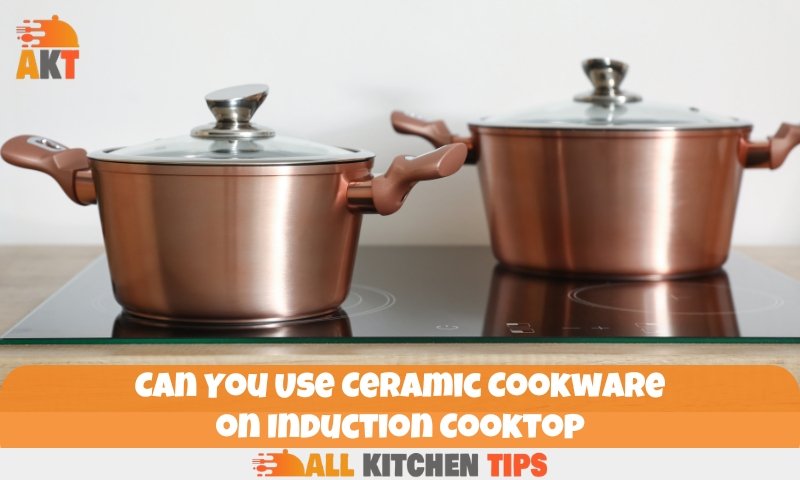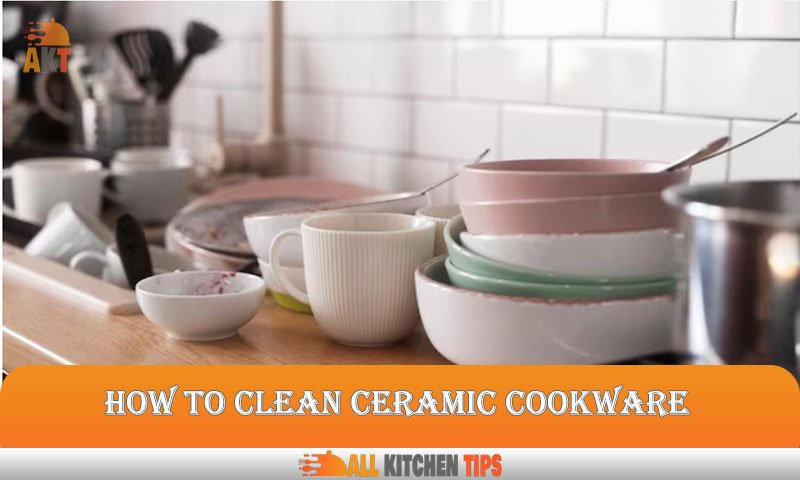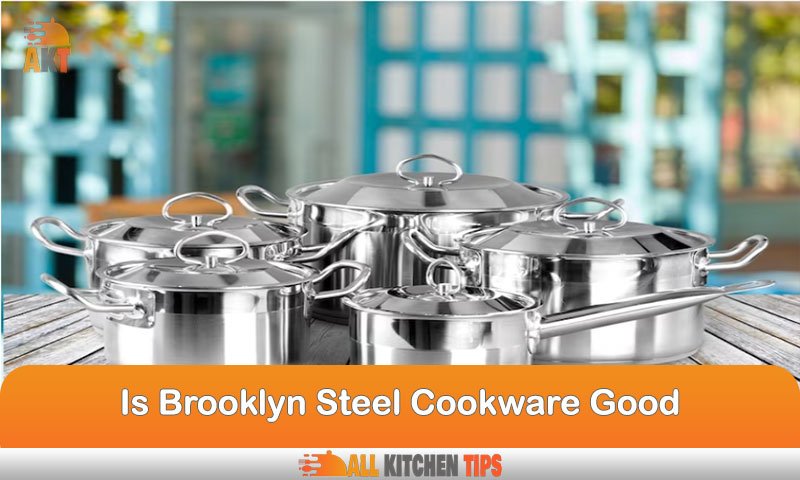Yes, ceramic cookware can be used on an induction cooktop. Ceramic cookware that has a flat and magnetic bottom will work on an induction cooktop since the magnetic bottom creates the necessary friction for heating.
Ceramic cookware is an excellent option for those who want to enjoy healthy cooking and do not want to compromise on quality. Induction cooktops have become increasingly popular in the past decade due to their efficiency and speed. Induction cooktops use magnetic currents to heat the cookware, making them much more energy-efficient and safer to use than traditional cooktops.
However, not all cookware is suitable for use on induction cooktops. The cookware must have a ferrous base, which means it should be magnetic, for it to work on an induction cooktop. Ceramic cookware, which is known for being durable, easy to clean, and food-safe, is an excellent option for use on an induction cooktop.
What Is Induction Cooking?

Can you use ceramic cookware on an induction cooktop? what is induction cooking?
Cooking technology has come a long way in recent years, and induction cooking is one of the newest and most exciting developments. While it may seem like a mystery to some people, it is known for its energy efficiency, ease of use, and quick cooking times.
However, before we delve deeper into the use of ceramic cookware with an induction cooktop, let’s start with the basics, understanding induction cooking.
How do Induction Cooktops Work?
Induction cooktops are made up of a flat surface with no visible heating elements or burners. The cooktop is equipped with a series of electromagnets under the surface that generate a magnetic field when an electric current passes through them.
When a magnetic material, such as a piece of ferromagnetic cookware, is placed on an induction cooktop, the magnetic field penetrates the cookware and causes electrical currents to occur, heating the cookware and its contents.
Advantages Of Induction Cooking
Induction cooking has several advantages over other cooking methods. Here are some of the benefits of using induction cooktops:
- Energy efficiency: Induction cooktops are highly energy-efficient. Unlike traditional stovetops, which lose a significant amount of heat to the air around them, induction cooktops generate heat only in the cookware.
- Speed: Induction cooktops are one of the quickest cooking methods. Cooking times are shortened because the cooktop’s magnetic field heats cookware much more quickly than gas or electric stovetops.
- Safety: Unlike gas stovetops, which can emit dangerous fumes, induction cooktops emit no flame or gas. Also, the surface of the cooktop remains cool to the touch, reducing the risk of burns and fires.
- Precision: Induction cooktops provide precise temperature control, making them ideal for cooking delicate dishes that require precise temperatures. You can control the temperature of the cookware much faster than on traditional stovetops. By varying the power supply, the temperature can be changed instantly.
Induction cooking is a modern and convenient cooking method that is rising in popularity. It is highly energy-efficient, safe, fast, and easy to use. While you can use ceramic cookware with induction cooktops, not all ceramic cookware will work. So, it’s best to select cookware that is specifically designed for induction cooktops.
Understanding Ceramic Cookware

Are you looking for ceramic cookware that is suitable for induction cooktops? You might be wondering if ceramic cookware is compatible with an induction cooktop or not. The answer is yes, you can use ceramic cookware on an induction cooktop.
However, you need to make sure that the cookware’s base is made of magnetic materials such as stainless steel or iron. We will be discussing ceramic cookware, its properties, and its advantages and disadvantages.
Properties Of Ceramic Cookware
Here are some of the significant properties of ceramic cookware:
- Non-reactive: Ceramic cookware is non-reactive, which means it doesn’t interact with acidic foods like tomatoes and vinegar. This property is essential as it prevents the leaching of metals into your food, making it safer to consume.
- Non-stick surface: Ceramic cookware’s glaze creates a non-stick coating that prevents food from sticking to the surface. It also makes cleaning easier, as food particles do not stick to the surface.
- Oven safe: Most ceramic cookware is oven safe, which means you can use it to cook dishes that require oven baking or broiling.
Advantages And Disadvantages Of Ceramic Cookware
Ceramic cookware has its advantages and disadvantages. Here are some of them:
Advantages
- Non-stick surface: The non-stick surface of ceramic cookware provides an excellent cooking experience. Food doesn’t stick to the surface, making it easier to clean.
- Even heating: Ceramic cookware has excellent heat retention capabilities, which means it heats evenly without developing hot spots. This property allows food to cook evenly without burning or scorching.
- Easy to clean: Ceramic cookware is easy to clean as food doesn’t stick to the surface. It can be cleaned with a soft sponge and mild dish soap.
Disadvantages
- Fragile: Ceramic cookware can chip or crack if dropped or hit by a hard object. It requires careful handling to avoid damage.
- Limited suitability: Ceramic cookware is not suitable for all types of cooking. For instance, it is not ideal for high-temperature cooking or searing.
- Limited lifespan: Ceramic cookware has a limited lifespan, which can be reduced further if it is not adequately cared for.
To conclude, ceramic cookware is compatible with induction cooktops, provided that the cookware has a magnetic base. It has several advantages, such as a non-stick surface, even heating, and ease of cleaning. However, it also has its disadvantages, like being fragile and not very suitable for high-temperature cooking.
Ensure that you make an informed decision when choosing ceramic cookware for your cooking needs.
The Mystery Of Ceramic Cookware And Induction Cooktop Compatibility
Are you trying to use your ceramic cookware on your induction cooktop, but it doesn’t seem to work? The compatibility of ceramic cookware with induction cooktops is indeed a mystery. This is because not all ceramic cookware is designed to work on induction cooktops.
Explanation Of The Mystery
Induction cooktops use a magnetic field to heat the cookware, while traditional cooktops use thermal conduction to transfer heat to the cookware. Ceramic cookware contains no metal content, which means that it cannot be magnetized. Therefore, the mystery lies in how ceramic cookware can conduct heat without being magnetic.
Why Ceramic Cookware May Not Work On An Induction Cooktop
Not all ceramic cookware will work on an induction cooktop. The main reason is that ceramic cookware needs to have a magnetic layer for it to be compatible with induction cooktops. Without a magnetic layer, the induction cooktop won’t be able to detect the cookware.
Therefore, if the ceramic cookware is not specifically designed for induction cooktops, it will not work.
The Science Behind Ceramic Cookware And Induction Cooking
Ceramic cookware is made from a combination of clay, minerals, and water and fired at high temperatures. Because of its unique composition, ceramic cookware can conduct heat well even without a metal layer. The clay used in ceramic cookware contains electromagnetic properties that work with the magnetic field produced by induction cooktops.
This makes it possible for ceramic cookware to be compatible with induction cooktops if it has a magnetic layer.
The Benefits Of Using Ceramic Cookware On An Induction Cooktop
Using ceramic cookware on an induction cooktop has several benefits:
- Ceramic cookware is non-toxic and environmentally friendly.
- It is durable and can last for a long time.
- It can distribute heat evenly and prevent hot spots.
- It is resistant to scratches and stains.
- Ceramic cookware can be used on all types of cooktops, including induction cooktops, gas cooktops, and electric cooktops.
Ceramic cookware compatibility with induction cooktops depends on the presence of a magnetic layer. We hope this article has helped you understand the mystery behind ceramic cookware and induction cooktop compatibility. Now that you know the science behind it, you can confidently choose and use ceramic cookware on your induction cooktop.
Factors To Consider When Choosing Ceramic Cookware For Your Induction Cooktop
Compatibility Considerations
Not all ceramic cookware is suitable for induction cooktops. The cookware should be made with ferromagnetic materials such as cast iron or stainless steel. The base of the cookware should also have a flat and smooth surface to ensure maximum contact with the cooktop’s surface for efficient heating.
Cookware Quality Considerations
When choosing ceramic cookware for your induction cooktop, quality is an essential factor. Investing in high-quality ceramic cookware will save you money in the long run.
Here are some factors to consider when deciding on the quality of ceramic cookware:
- The thickness of the cookware – thicker cookware will distribute heat evenly, reducing the risk of hotspots and warping.
- The quality of the ceramic coating – high-quality ceramic cookware uses a non-toxic coating that is free from PFOAs and is scratch-resistant.
- The durability of the ceramic cookware – the cookware should be able to withstand high heat and should not scratch easily.
Price Considerations
Ceramic cookware can vary in price, but it is essential to invest in high-quality cookware that will last longer. However, it is possible to find affordable options that are compatible with induction cooktops.
Convenience Considerations
When choosing ceramic cookware for induction cooktops, convenience is also an important factor to consider. Here are some convenience factors to consider:
- The weight of the cookware – ceramic cookware can be heavy, making it harder to handle.
- Dishwasher safe – look for cookware that is dishwasher safe for easy cleaning.
- Oven safe – some ceramic cookware is not safe for oven use, so if this is important to you, make sure to check the specifications before purchasing.
When choosing ceramic cookware for your induction cooktop, ensure it is ferromagnetic, flat, and smooth. Quality, price, and convenience are also factors to consider when making your purchasing decision.
FAQs
Can Ceramic Cookware Be Used On Induction Cooktops?
Yes, it is possible if the base of the ceramic cookware is induction compatible. Look for a label on the cookware that says ‘induction friendly’.
Will Ceramic Cookware Scratch My Induction Cooktop?
No, ceramic cookware is not abrasive and will not scratch induction cooktops. However, avoid dragging the cookware across the cooktop to prevent scratches.
Is Ceramic Cookware Suitable For High-Heat Cooking On Induction Cooktops?
Yes, ceramic cookware is suitable for high-heat cooking on induction cooktops. It evenly distributes the heat, ensuring even and well-cooked food every time.
Conclusion
After conducting thorough research, we can safely conclude that ceramic cookware can be used on induction cooktops, but with the right considerations. While some ceramic cookware may not work effectively due to the materials used in their construction, others are specifically designed for induction cooking.
Always check the product information to ensure that the ceramic cookware is suitable for use with an induction cooktop. Additionally, it is imperative to ensure that the cookware is flat-bottomed to establish effective contact with the induction heating surface. Taking the necessary precautions when using ceramic cookware on an induction cooktop ensures the longevity of the cookware and the safety of the user.
So, if you have ceramic cookware that you would like to use on an induction cooktop, make sure you follow these guidelines, and you will be set.





